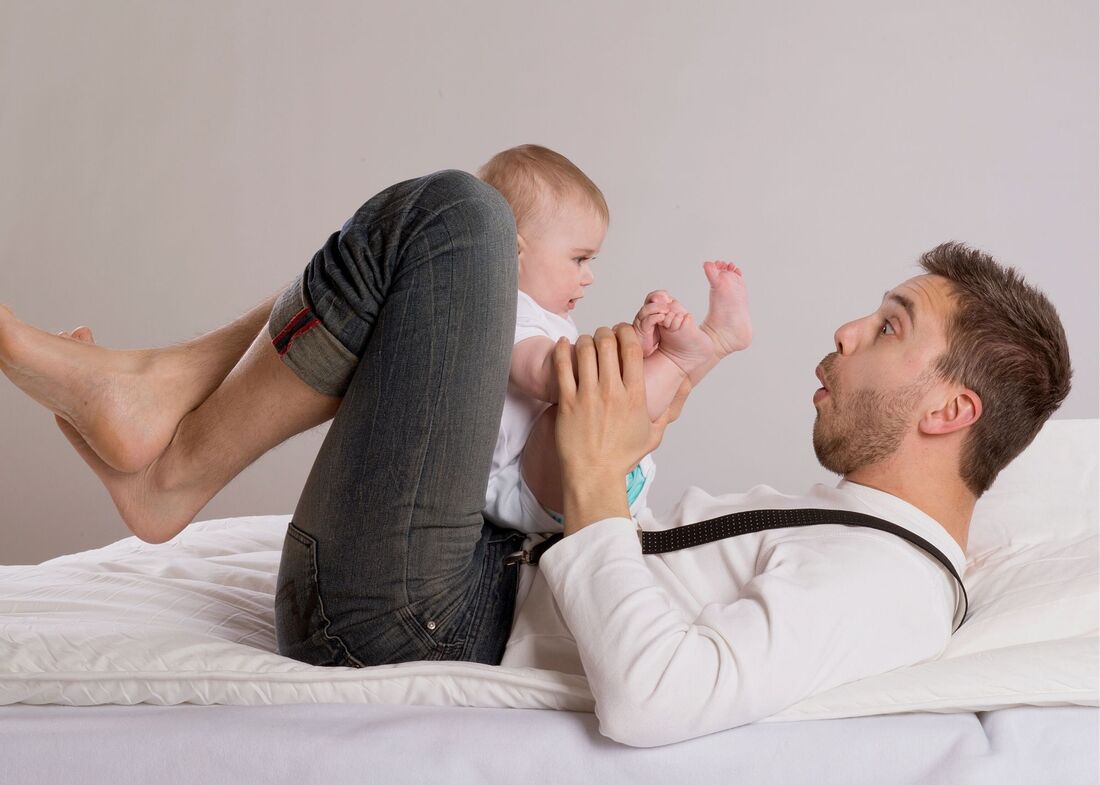|
On June 21st many Canadian families will be celebrating Father’s Day. It is great to see that fathers have their special day, just like mothers do, but I doubt that the majority of Canadian fathers feel equally appreciated on a daily basis. Although we are gradually moving away from a centuries-long focus on mothers as the primary caregivers, and it is a lot more likely to see engaged fathers at the playgrounds across the Lower Mainland (compared to just a decade ago, or compared to numerous other places in the world), there are still various barriers to fathers’ involvement.
Cultural and religious norms are often intertwined with gender expectations around manhood and parenthood, which present us with the view of the father as an emotionally-distant provider, whose involvement in parenting is limited to disciplining. However, even for fathers who do not follow this script there remain certain logistical barriers to involvement, including work schedule and commitments, lack of role models and lower probability of custody after divorce to name a few. And yet, over the last three months of disrupted routines I have witnessed – as a parent and as a counsellor – many fathers taking over the role of primary caregivers, making difficult compromises in order to be there for their children (not necessarily as providers) and letting their nurturing side shine. I have seen children re-connect with their often less-present dads in meaningful ways, which has truly filled my heart. There are numerous studies examining the positive effects of a father's involvement on children’s socio-emotional development. The infants of fathers who attend to their cries and engage with them in a playful way grow more emotionally secure and with higher self-esteem; they engage in more pro-social behavior, leading to stronger social attachments as adolescents. Compared to mothers, fathers tend to engage in more stimulating play with their children; they also encourage exploratory behavior and risk-taking, thus fostering greater independence and confidence. Through rough and tumble play children also learn to regulate their feelings, which is correlated with less externalizing in the form of oppositional behavior, temper tantrums and aggression. Similarly, children who have positive relationships with their fathers are less likely to develop anxiety or depression, and overall have good mental and physical health. In terms of children’s cognitive development there are studies suggesting better academic readiness at the beginning of school, and higher academic achievements throughout the school years for children of involved fathers. Compared to mothers, fathers are less likely to modify their language when speaking to their children, thus challenging the latter to expand their vocabulary, which is linked to better linguistic capacities. Girls and boys tend to benefit in similar ways from their fathers’ positive engagement with the exception of a few noticeable differences among the genders: boys tend to engage in significantly less disruptive behavior (compared to the sons on non-present or non-engaged fathers), with effects lasting into adulthood; on the other hand, teenage daughters of involved fathers engage in fewer sexual risks, and are more likely to develop healthy relationships with men throughout adulthood. Considering that there has been a significant decrease in the prevalence of traditional nuclear families, I realize that these findings may leave many readers with questions regarding the development of children raised by one parent only, same-sex or gender-queer couples, and extended families. Fortunately, there is more research being developed to examine some of the related influences, which I would like to address in another article. Instead, my goal here is to celebrate the role of father figures (in any type of family) by highlighting some of the positive influences that they have on children. And since many of us are still living the consequences of the pandemic, leaving many fathers with less work than usual, I’d also like to take the opportunity to encourage them to engage in quality interactions with their children, thus making the best of the increased availability they may have. The key word here is quality, because the examined positive influences are not as significant when fathers are simply present or engage in many, but not necessarily positive/stimulating interactions. As in any meaningful social connection warmth is essential. This is not to say that fathers should not engage in disciplining; to the contrary, limit-setting and consistent enforcement of (logical) rules are important for children to feel secure and learn valuable skills. However, don’t forget to praise good behavior, which not only reinforces what you’d like to see more of in your children, but it also increases their self-efficacy and self-esteem. Fathers can also help a lot with caring (cooking, feeding, bathing, tucking into bed) and teaching – especially now that many school-aged children are involved in online learning or attend school part-time only. Yet, by teaching (I don’t mean just school projects and homework); fathers can model problem-solving and teach skills anywhere from tying shoelaces to surviving in the wild. With nice weather coming up hopefully there will be many opportunities to teach children how to ride a bike, swim, fish or set up a tent. Finally, I’d like to end by emphasizing that one of the foundations for childhood development is play – solitary, make-belief, with siblings or friends, with all caregivers – allow yourselves to act silly every once in a while, and have a fun summer! Warmly, Bobbie Miteva, Registered Therapeutic Counsellor Click Here to Contact Directly REFERENCES:
0 Comments
Leave a Reply. |
Petra Sovcov is not a Medical Doctor (MD) nor a Naturopath (ND), she is a Clinical Herbal Therapist (CHT) and holds a Doctorate in Natural Medicine (DNM). The suggestions or recommendations made on this site are not meant to be a substitute for advice from your MD, or as a substitute for any prescriptions you may be taking. Suggestions followed will be the responsibility of the reader, and are stated with the intention of interest and education only. If you have a health issue, please see your primary care physician (MD) first and foremost. Categories
All
Archives
July 2024
|


 RSS Feed
RSS Feed